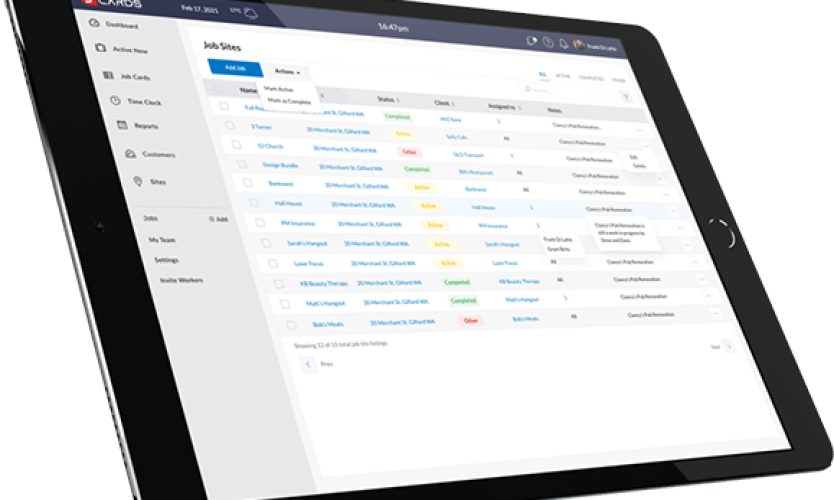Boost Productivity and Accountability with Modern Time Tracking Apps
In today’s fast-paced business world, time is more valuable than ever. Whether you are a freelancer, a startup founder, a small business owner, or part of a large corporate team, understanding how your working hours are used is essential for improving productivity and boosting profitability. This has led to a growing demand for digital tools that help individuals and companies manage their time efficiently. Two solutions at the center of this productivity evolution are the Time Tracking App and Time Tracking Software.
These tools are changing the way businesses understand employee performance, manage projects, and calculate costs. Instead of relying on manual paperwork, sticky notes, spreadsheets, or guesswork, time tracking tools provide instant insights that support smarter decision-making.
Why Time Tracking Matters
Time is the most limited resource for any business. Without proper monitoring, hours can disappear into unproductive tasks, distractions, or inefficient work processes. A Time Tracking App ensures that every hour spent on a project, task, or client is accounted for accurately.
Some of the key benefits of monitoring time include:
- Clear visibility into workload and progress
- Improved planning and scheduling
- Enhanced productivity
- Accurate billing for client work
- Reduced project delays
- Increased accountability across the team
When businesses understand how work hours are being utilized, they can identify gaps, refine processes, and streamline operations.

What Is a Time Tracking App?
A Time Tracking App typically refers to a lightweight, user-friendly tool that individuals or teams install on their smartphones, tablets, or computers. It tracks hours spent on tasks, projects, or activities in real time.
These apps are especially popular among:
- Freelancers charging by the hour
- Remote workers
- Field service professionals
- Students managing study schedules
- Teams managing flexible work environments
With features like timers, task lists, and productivity statistics, time tracking apps provide clarity and discipline without needing complex administrative systems.

What is Time Tracking Software?
While a Time Tracking App is generally more individual-focused, Time Tracking Software is typically more comprehensive and used at the business or enterprise level. This software often comes with advanced functionality, including:
- Multi-user teams and role-based access
- Integration with payroll systems
- Project costing and budgeting
- Invoicing and billing
- Attendance and leave management
- Productivity analytics
- Client management dashboards
Time tracking software helps businesses analyze labor costs, forecast project timelines, and enhance overall time efficiency across departments.
Key Features of Modern Time Tracking Tools
Today’s Time Tracking Apps and Software solutions come with a wide range of features designed to simplify workplace management. Here are some common functionalities businesses look for:
✦ Automated Timers
Users can click “Start” when a task begins and “Stop” when it ends, ensuring accurate time logs.
✦ Project and Task Management
Assign different tasks to different team members and track how much time each takes.
✦ Productivity Reports
Charts and analytics help businesses understand where time is being spent and how to improve efficiency.
✦ Mobile Access
With cloud-based systems, employees can track time from anywhere—ideal for remote or hybrid teams.
✦ Billing and Invoicing
Freelancers and service-based agencies can generate invoices based on the hours tracked, ensuring accurate billing.
✦ Integration Capabilities
Time tracking tools often connect with project management platforms, accounting software, CRMs, calendars, payroll systems, and HR tools.
How Time Tracking Improves Business Operations
Adopting Time Tracking Software brings strategic benefits that go beyond clocking in and out. The data collected helps management make informed decisions about operations and planning. Some of the major business benefits include:
Better Resource Allocation
Managers can see who is overloaded and who has capacity for more tasks, avoiding burnout and ensuring fair load management.
Accurate Cost Management
If a project is taking longer than estimated, companies can spot issues early and adjust budgets and timelines.
Increased Transparency
With clear logs of who did what and when, misunderstandings and guesswork are eliminated.
Improved Client Trust
Clients feel more confident when they receive invoices supported by transparent time logs and reports.
Enhanced Remote Work Oversight
With distributed teams becoming common, time tracking helps ensure productivity without micromanagement.
Time Tracking for Individuals
Even outside business settings, a Time Tracking App can transform personal productivity. Students can track study time, freelancers can stay on schedule, and individuals can assess how much time they spend on social media, hobbies, or daily tasks. Time tracking encourages self-awareness and discipline, making it easier to adopt new habits and routines.
Choosing the Right Time Tracking Solution
Before selecting a tool, consider the following:
- How many users will be tracking time?
- Do you need payroll or billing features?
- Do you need integrations with other systems?
- Will the team use desktop, mobile, or both?
- Do you need real-time analytics and reports?
For individual users, a simple and intuitive Time Tracking App may be enough. For companies, advanced Time Tracking Software with data reporting and multi-user support may be the smarter choice.
Conclusion
In a world where efficiency defines competitive advantage, time tracking has become essential for individuals and organizations alike. By implementing a reliable Time Tracking App or comprehensive Time Tracking Software, businesses can gain deeper insights into their operations, improve productivity, and make smarter decisions. Whether you’re working independently or managing a full team, time tracking is the key to working smarter—not harder.














